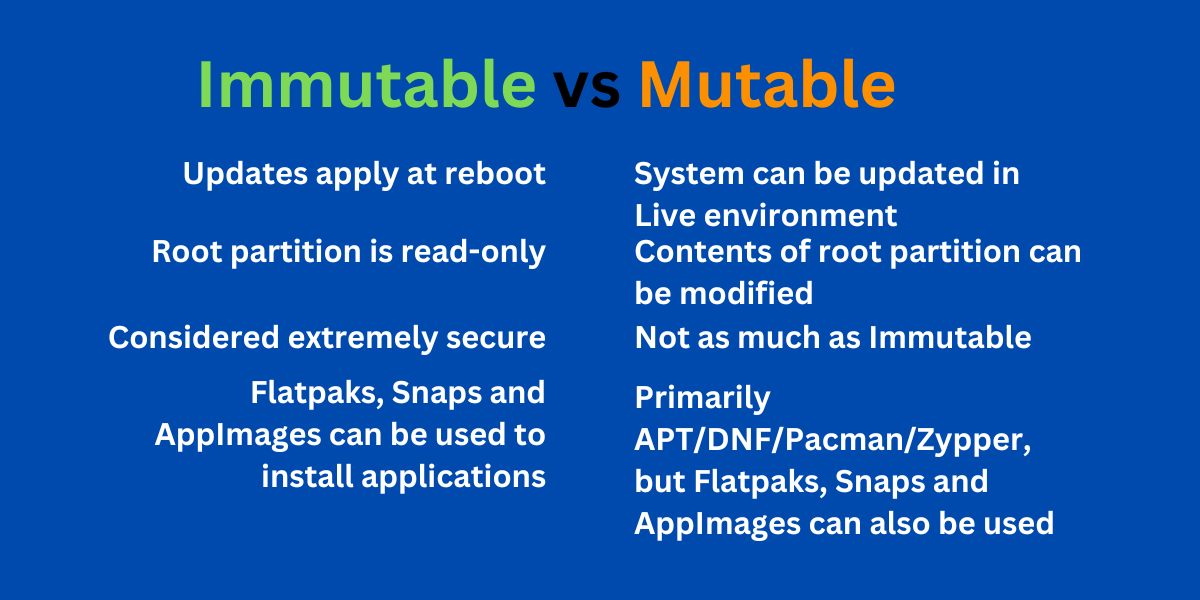this post was submitted on 13 Jan 2025
259 points (95.1% liked)
Linux
49239 readers
5 users here now
From Wikipedia, the free encyclopedia
Linux is a family of open source Unix-like operating systems based on the Linux kernel, an operating system kernel first released on September 17, 1991 by Linus Torvalds. Linux is typically packaged in a Linux distribution (or distro for short).
Distributions include the Linux kernel and supporting system software and libraries, many of which are provided by the GNU Project. Many Linux distributions use the word "Linux" in their name, but the Free Software Foundation uses the name GNU/Linux to emphasize the importance of GNU software, causing some controversy.
Rules
- Posts must be relevant to operating systems running the Linux kernel. GNU/Linux or otherwise.
- No misinformation
- No NSFW content
- No hate speech, bigotry, etc
Related Communities
Community icon by Alpár-Etele Méder, licensed under CC BY 3.0
founded 5 years ago
MODERATORS
you are viewing a single comment's thread
view the rest of the comments
view the rest of the comments

I remain interested in the immutables or atomic distros because I know a lot of smart people that swear by them.
I also don't try them just yet because I know a lot of dumb people like me that end up breaking a lot of stuff before quitting them altogether.
They could be amazing and just not perfected yet or they may be a meme and no one's proved it outright just yet. Will be lurking this thread either way lool :D
These distros are great for beginners or less technically savvy. They're really just harder for people who have been using Linux forever and are very accustomed to the old ways.
Yeah I think atomic is more appropriate but I'm not exactly sure what the difference is?
Immutable = Read-Only Root FS && Updates entire system image rather than individual files
Atomic = Updates as single transaction (all or no update) && Containerization w/ Rollback capability
This is quick summary from quick research pls correct where technically wrong.
If we're asking what people mean when they use those descriptors, then you're correct.
However, literally speaking, in this context, immutable only means read-only, and atomic only means that updates are applied all-at-once or not at all (no weird in-between state if your update crashes halfway through).
The rest of the features (rollbacks, containerization, and immutable meaning full system image updates) are typically implied, but not explicitly part of the definition.
I knew a real wizard would clarify sooner than later. Much obliged and keep up the good work anon!
That makes sense, bazzite is referred to as atomic (that's what I meant in the above comment about atomic being more appropriate, forgot to add that context though lol) specifically instead of immutable. Bazzite updates like you said and you can always roll back, thank you for the explanation!